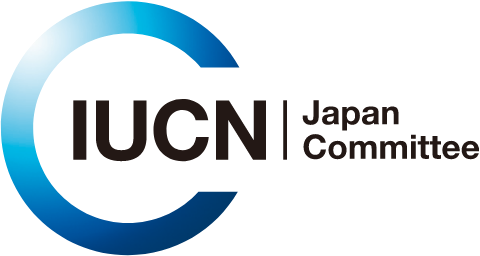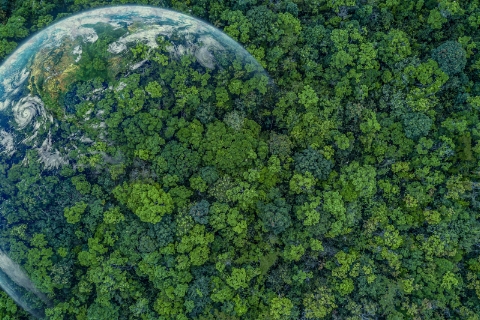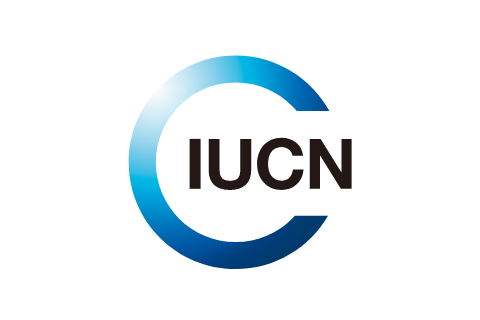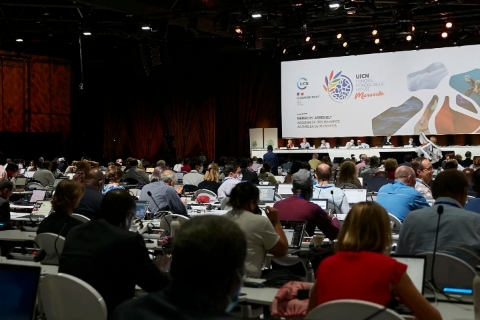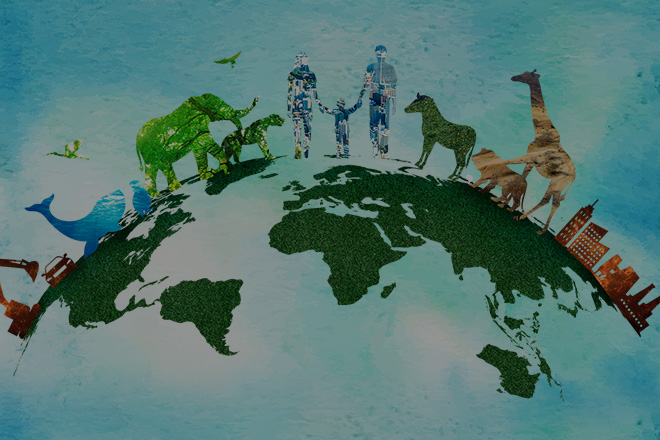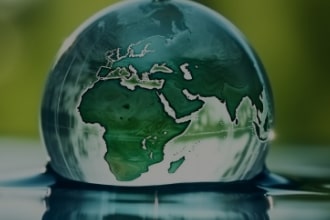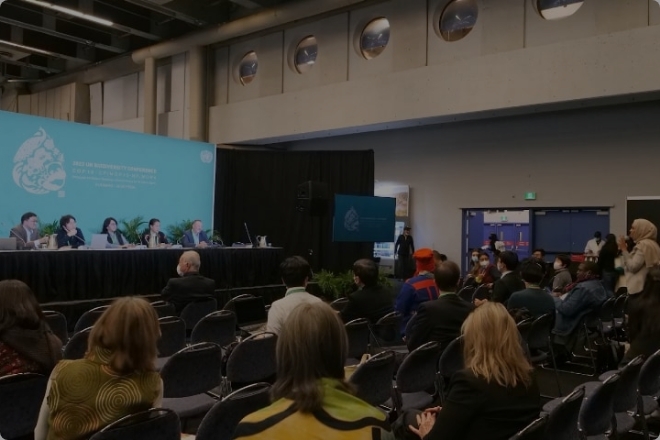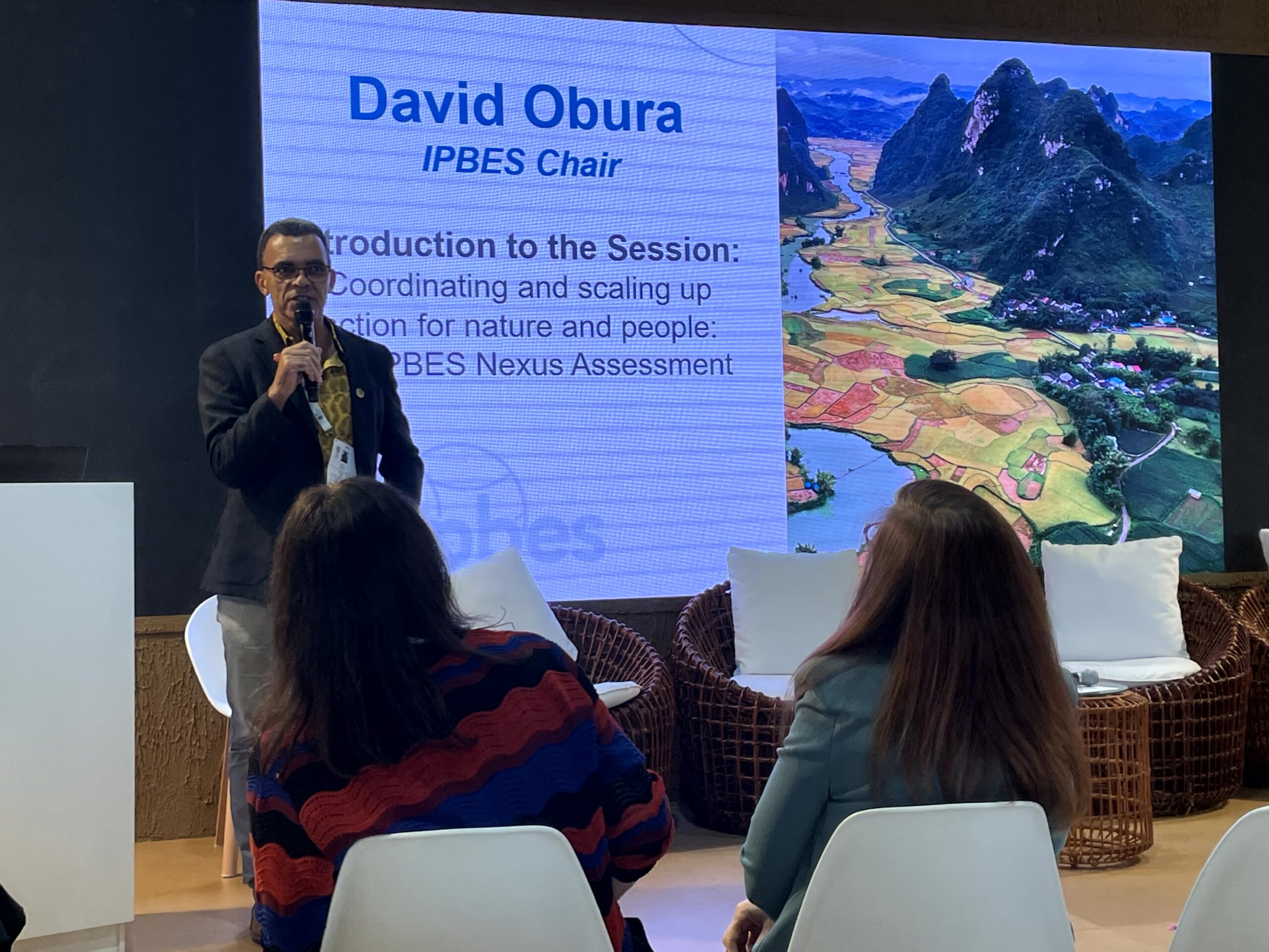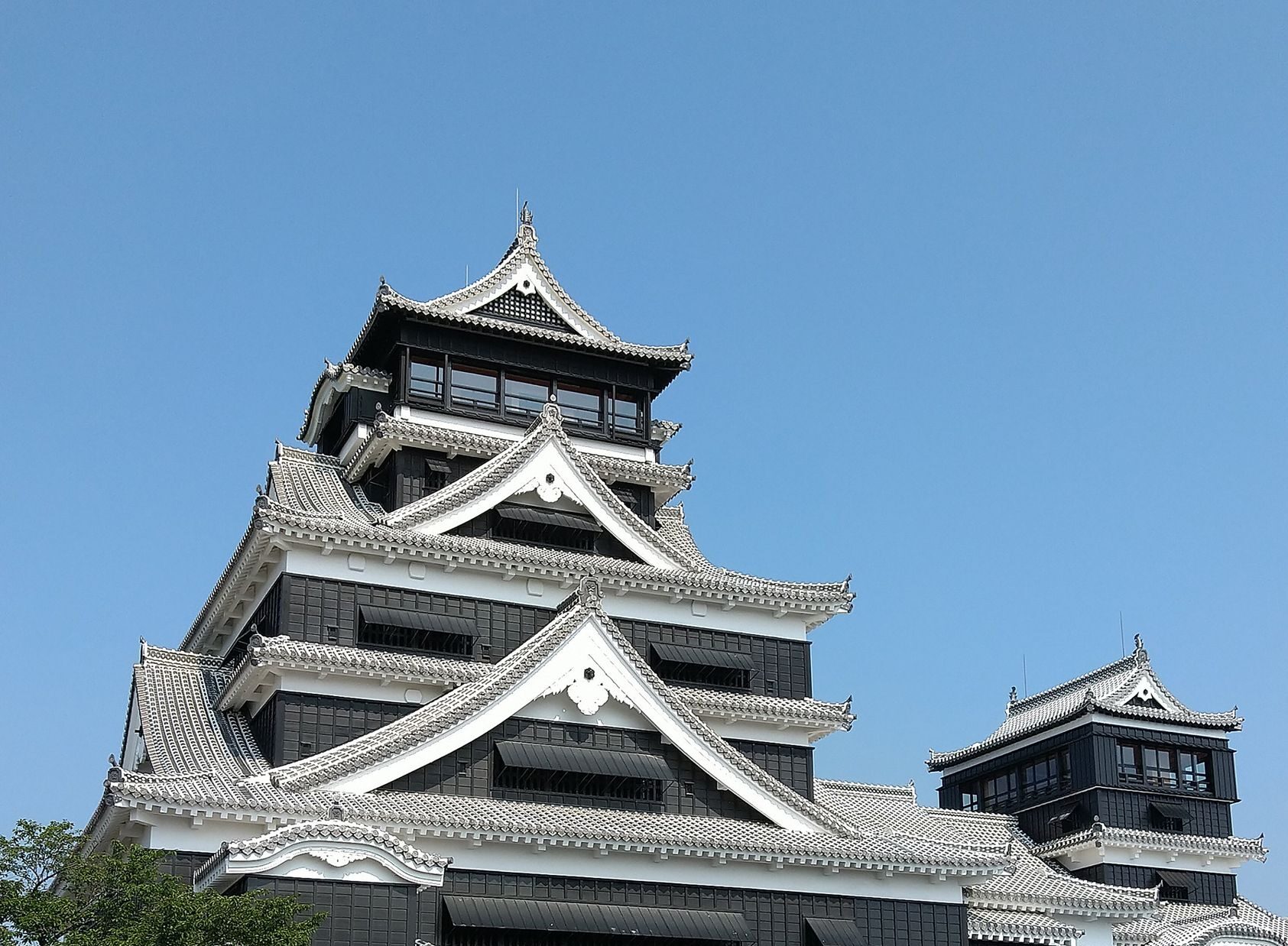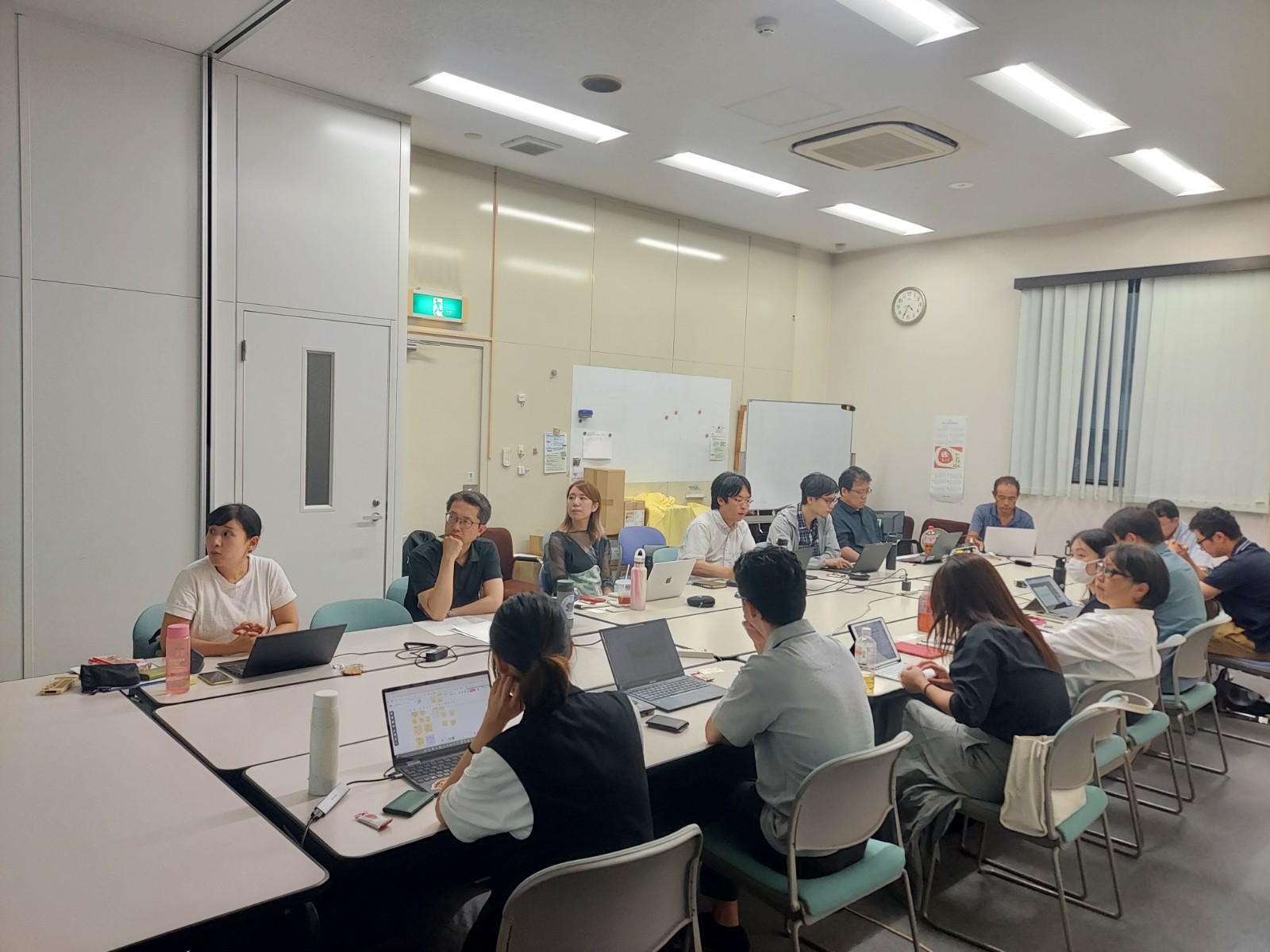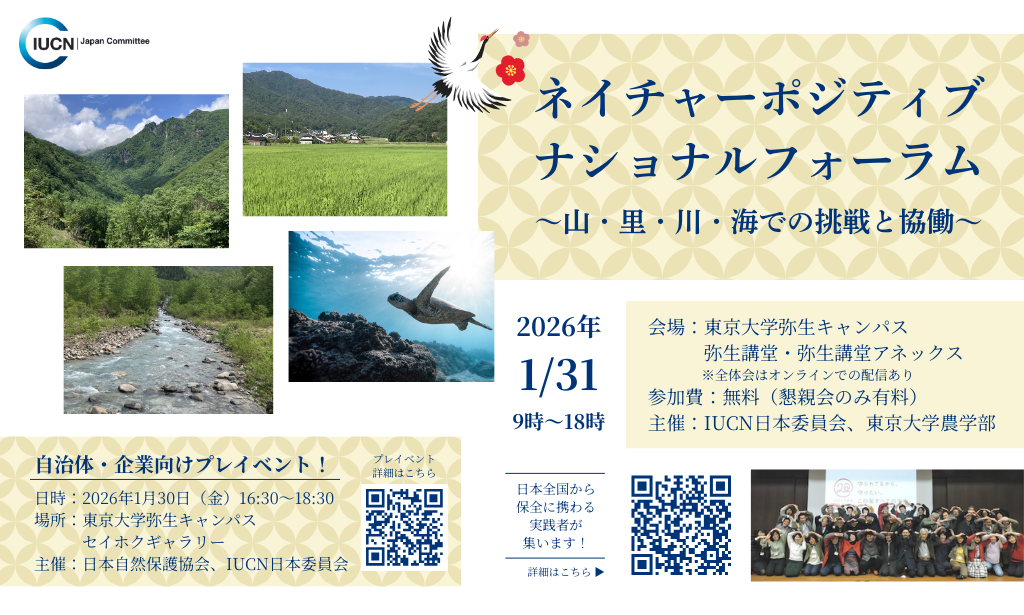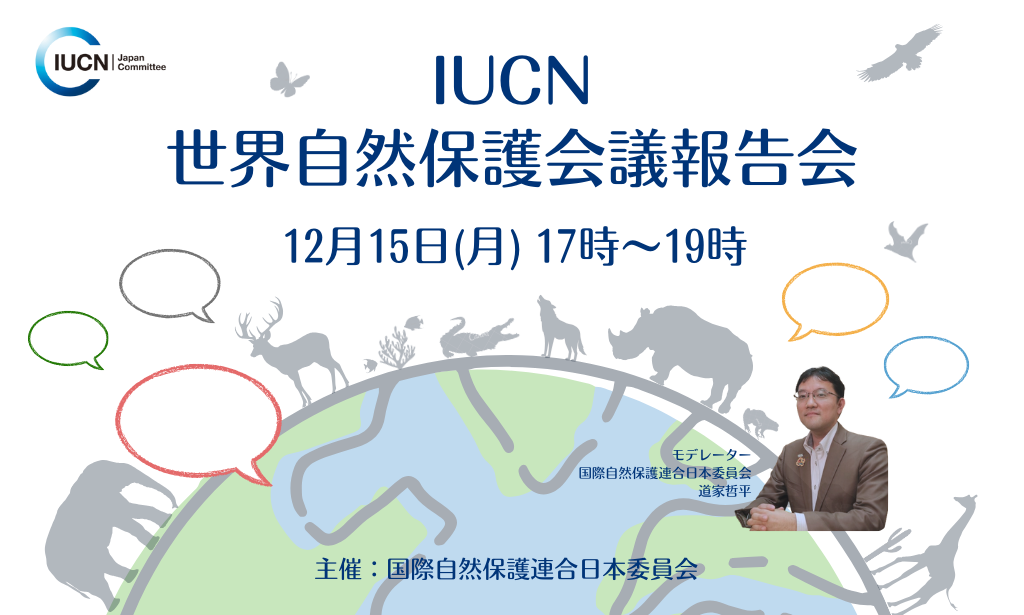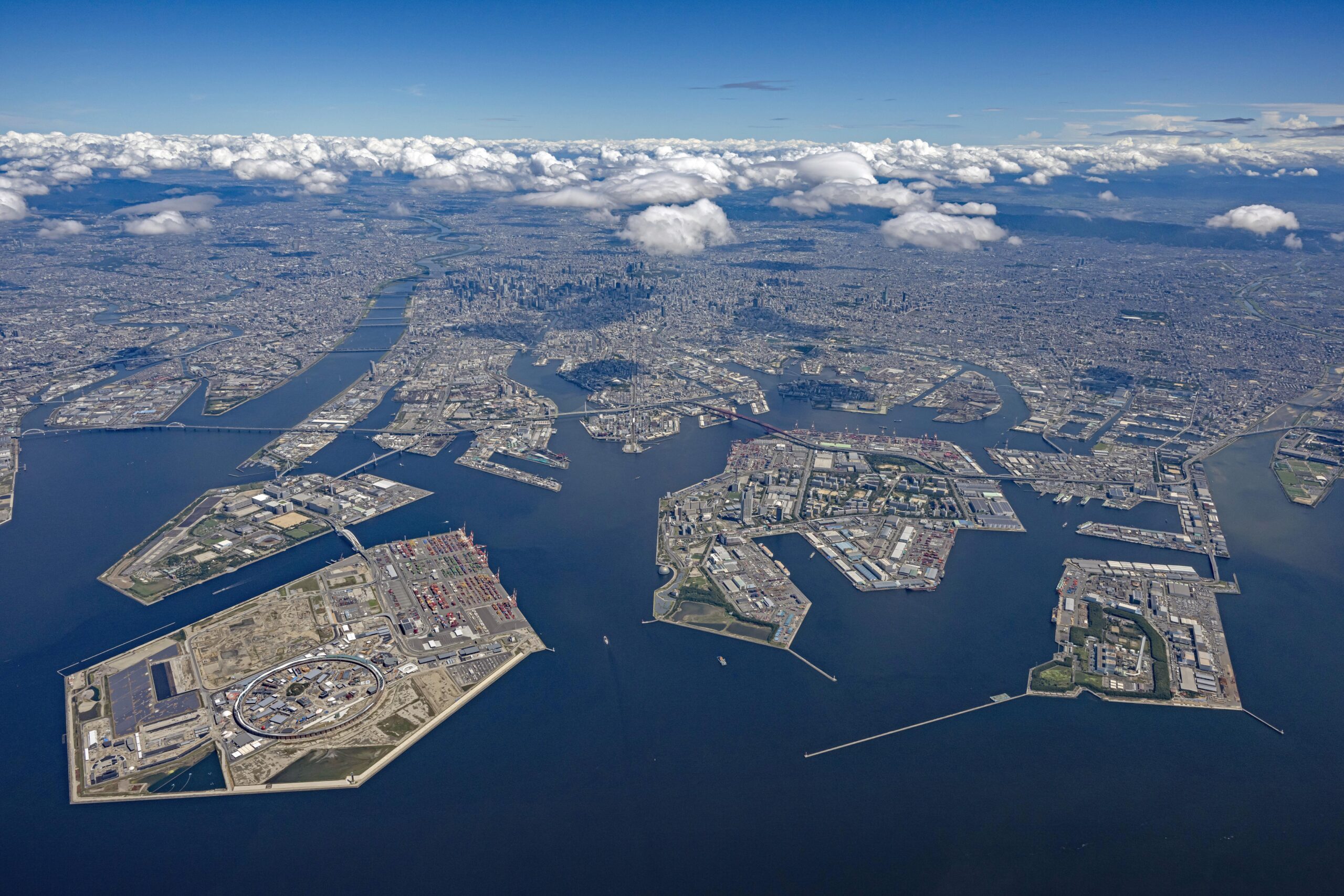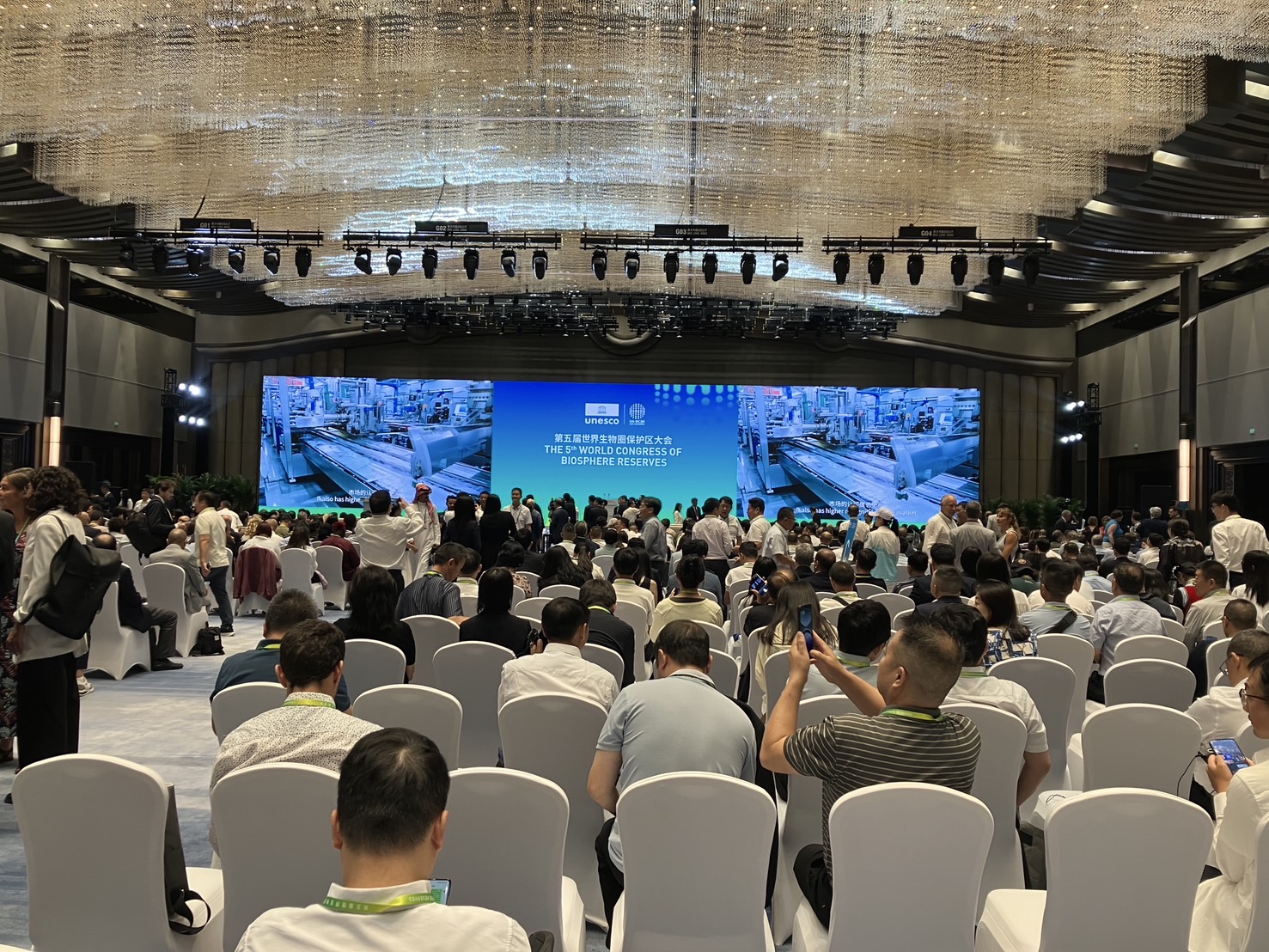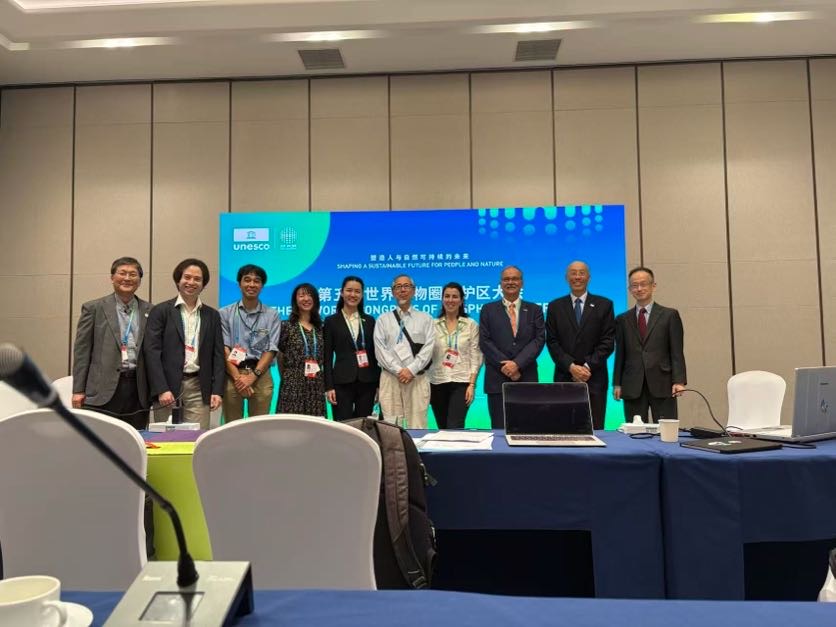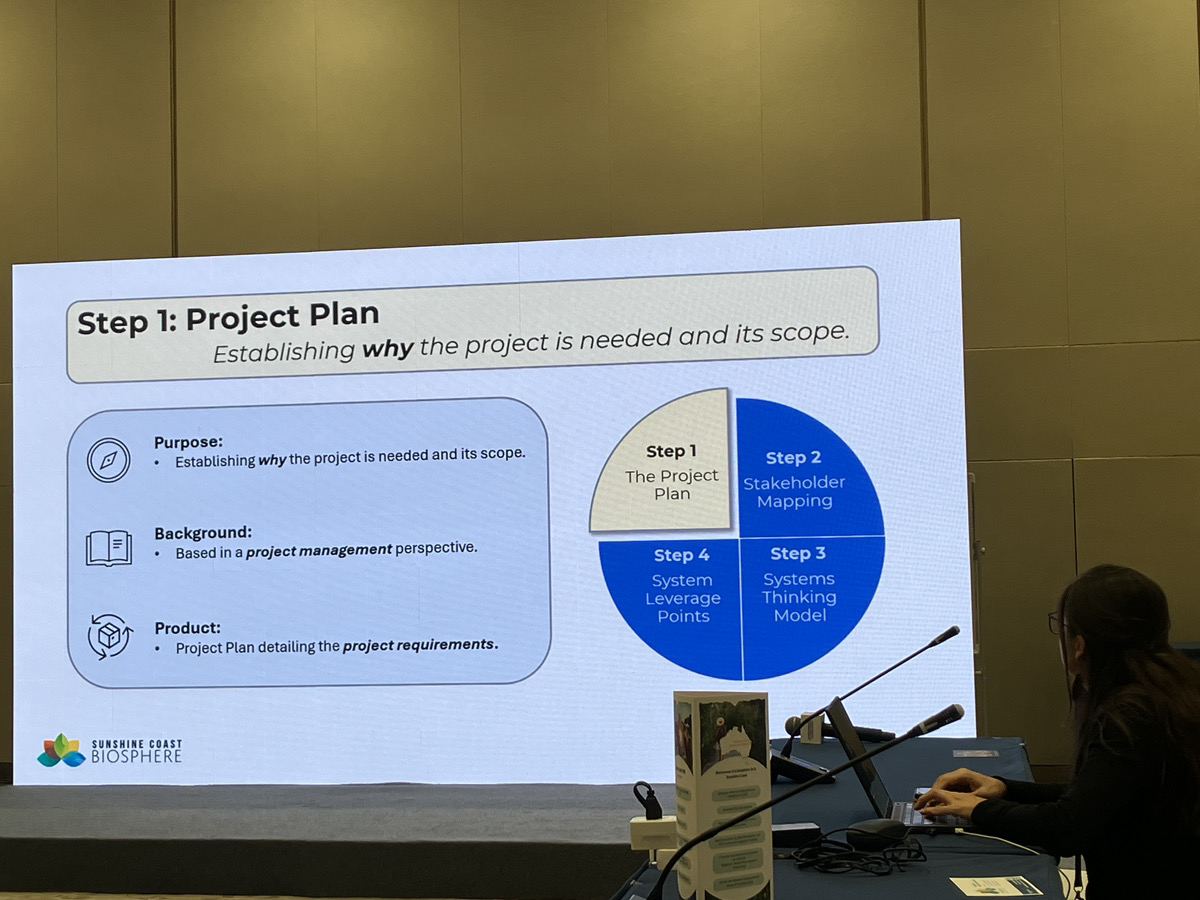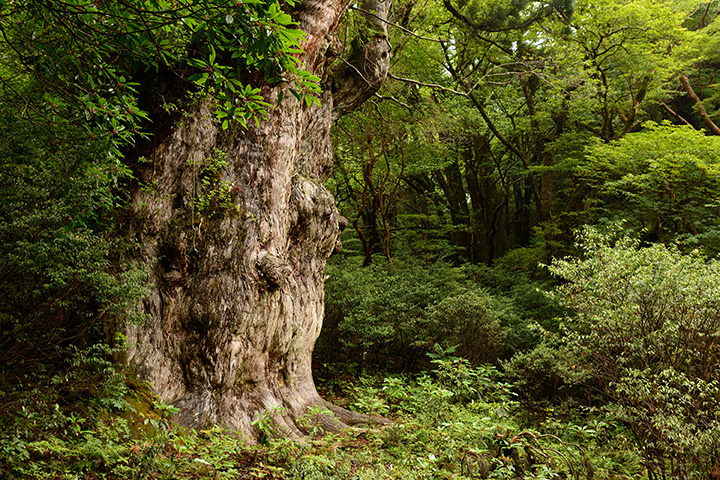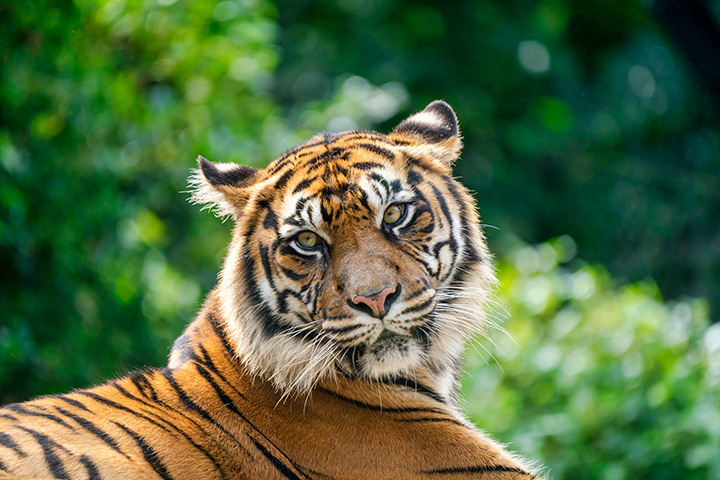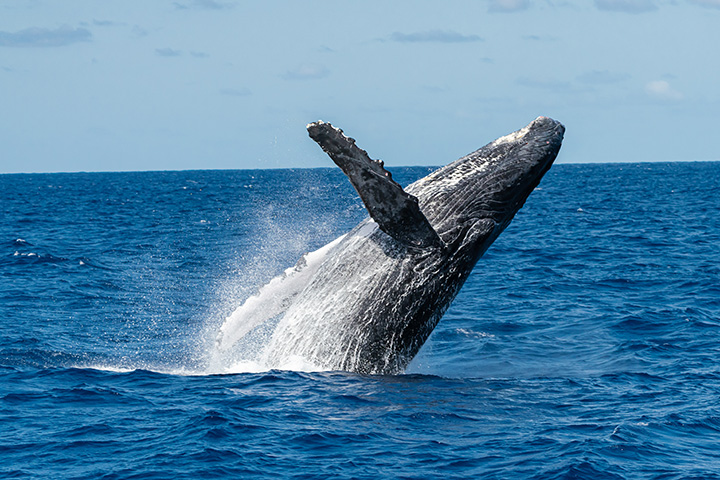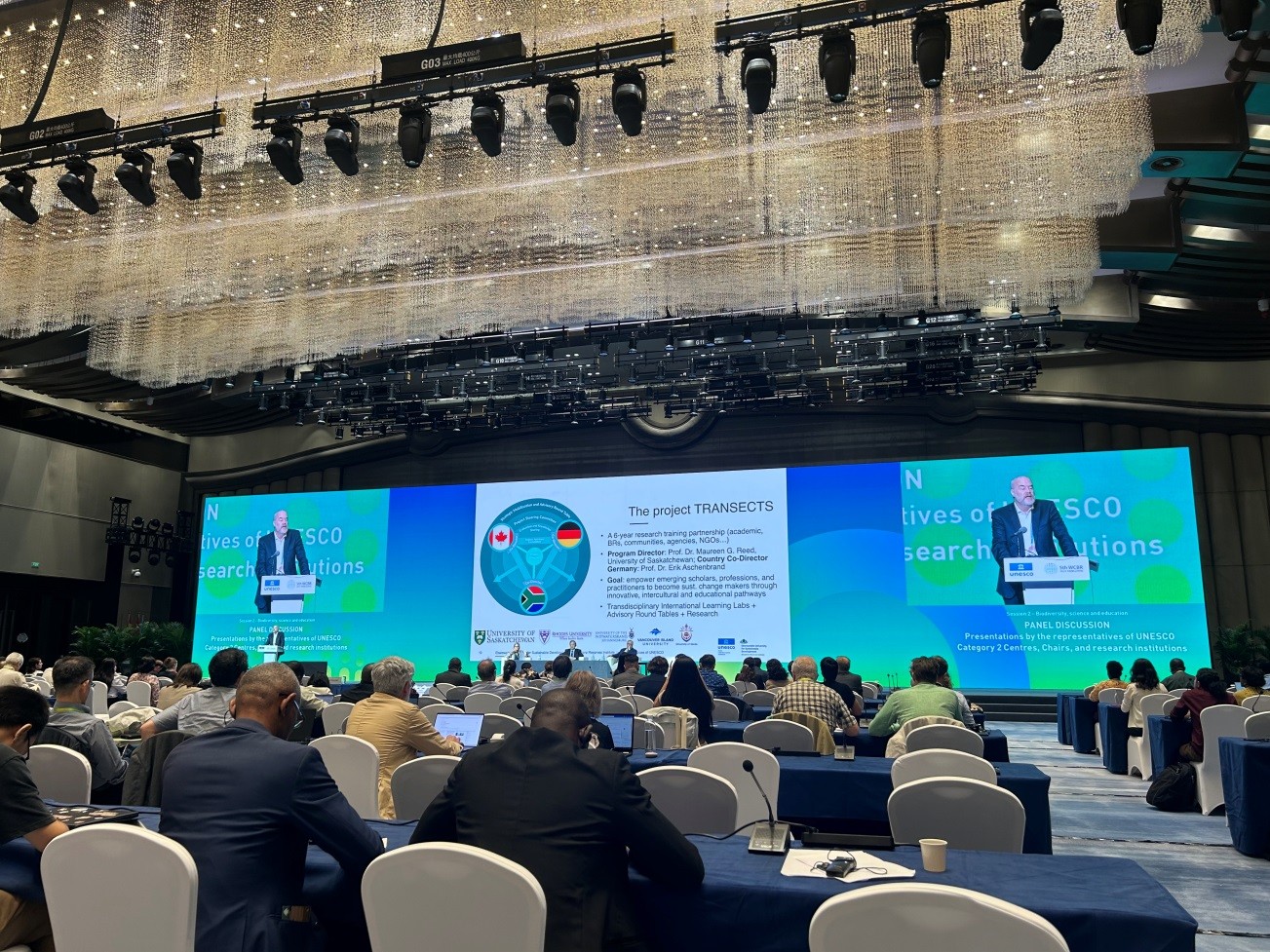
(日本語:English is below)
2025年9月23日に杭州で開催されたWCBR会議の第2回セッションでは、さまざまな研究分野で活動する科学者である4人のパネリストが、科学がさまざまな方向から生物圏保存地域にどのように関わっているかについて話し合いました。
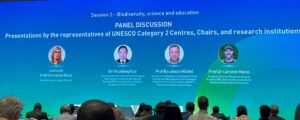
最初の講演者であるHuadong Guo(中国科学院院士、自然文化遺産のための宇宙技術国際センター(以下、HIST)所長)は、インターネット上で無料で利用可能なビッグデータを提供する宇宙技術の生物圏保護区への応用について講演を開始しました。HISTは、科学研究(学際的研究の実施)、技術応用(自然災害や人間活動の影響の監視と評価)、能力開発(研修ワークショップの開催)、国際交流を通じて、世界の生物圏保護区の保全活動を行っています。その結果、HISTは世界中のユネスコ指定地域における気候変動への曝露と生物多様性の健全性を評価し、リモートセンシングと機械学習モニタリグを組み合わせた手法を用いて、災害後の復興環境を評価しました。
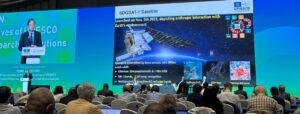
続いて、ドイツのエーバースヴァルデ持続可能開発大学生物圏保護区研究所の学術ディレクターであるCarsten Mann教授が、生物圏保護区に関する研究目標について発表しました。その目標は、応用研究、学際研究、国際的・学際的な教育・学習、研修、政策ネットワーク構築という4つの柱で構成されます。さらに、2025年から2032年までの研究戦略を策定し、生物多様性の保全、生物圏保護区のガバナンス、SDGsのための教育、気候変動の緩和と適応、土地利用と水利用をめぐる紛争を主要な研究分野として設定しました。
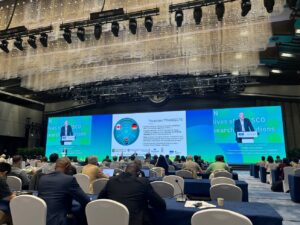
モデレーターを務めたポルトガルのリスボン新大学のFernanda Rollo先生は、科学と教育が特に生物圏保護区、そして一般的に自然保護において重要な役割を果たしており、科学に基づく支援があれば、生物圏保護区は将来さらに保護されるだろうという力強い結論でセッションを締めくくりました。
筑波大学大学院/IUCN-Jインターン
VU THI HANG
(English)
In the second session of the WCBR congress held in Hangzhou on 23rd September, 2025, 4 panelists who are scientists working in various research fields talked about how science engages in Biosphere Reserves from different directions.

The first speaker, Mr. Huadong Guo – Director of the International Centre on Space Technologies for Natural and Cultural Heritage (hereinafter referred to as HIST), Academician of the Chinese Academy of Sciences, China – began the talk by discussing his application of space technologies to Biosphere Reserves, providing freely available big data on the internet. HIST conducts conservation for World Biosphere Reserves through scientific research (conducting interdisciplinary research), technical application (monitoring and evaluating the impact of natural disasters and human activities), capacity building (organizing training workshops), and international exchange. As a result, HIST evaluated climate change exposure and biodiversity integrity of UNESCO-Designated sites globally, assessed the environment for Post-Disaster Recovery by using a combination of Remote Sensing and Machine Learning monitoring.

Then, Professor Carsten Mann – Academic director of Biosphere Reserve Institute, Eberswalde University for Sustainable Development, Germany – also shared his research goals in terms of Biosphere Reserves, including 4 pillars: Applied, Inter – and Transdisciplinary Research, International and transdisciplinary teaching and learning, Training, and policy – networking. In addition, he determined a research strategy for the 2025-2032 period with the key research areas being biodiversity conservation, Governance of Biosphere Reserves, Education for SDGs, Climate change mitigation and adaptation, and Land and water-use conflicts.

The moderator, Professor Fernanda Rollo from the New University of Lisbon, Portugal, wrapped up the session with a strong conclusion that science and education play an important role in Biosphere Reserves in particular and natural conservation in general, with the support of science-based, the Biosphere Reserves will be more conserved in the future.
University of Tsukuba, Graduate School/IUCN-J intern
VU THI HANG
